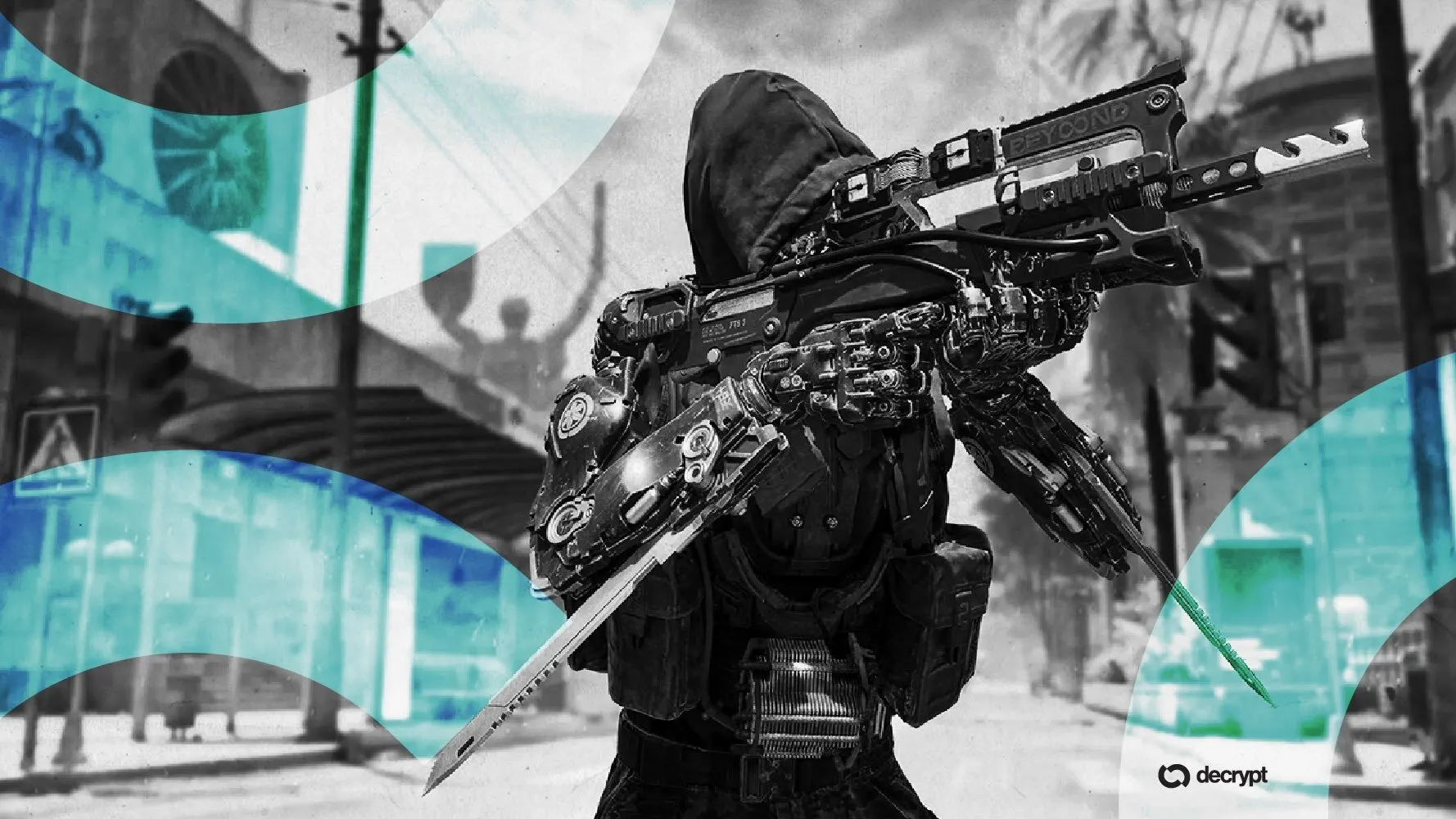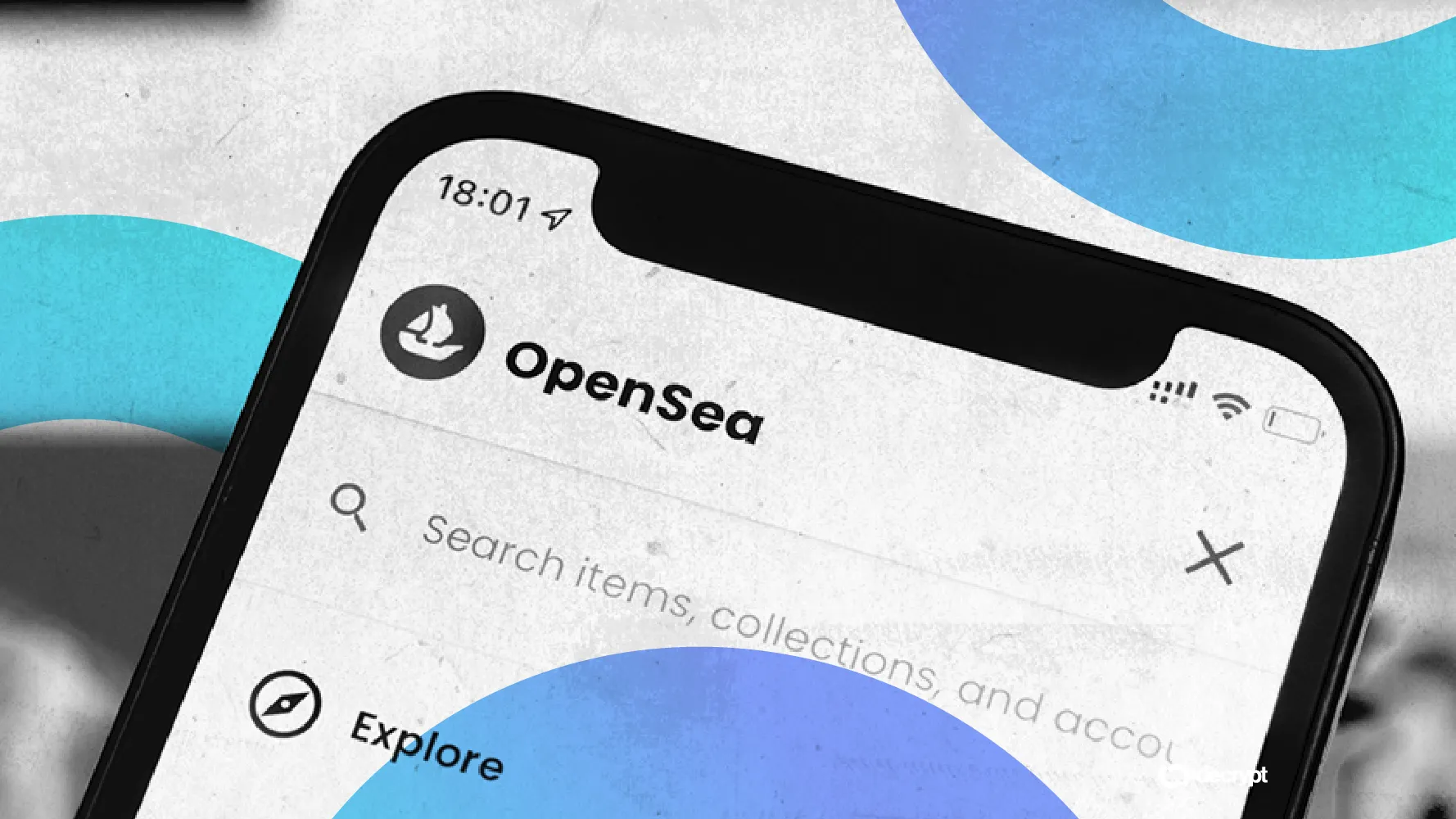In brief
- SOS is an airdrop from OpenDAO, distributed to people who have spent money on OpenSea transactions. The token is up more than 1,000% in just two days.
- The project isn't affiliated with OpenSea, but almost 200,000 wallets have claimed SOS tokens and the contract has a market cap of over $200 million.
On Christmas Eve, anyone who had ever spent money on OpenSea could claim a free Ethereum token called SOS, and the amount of SOS they’d get was determined by how much money they had spent on NFTs on OpenSea.
By Sunday, about 240,000 people had claimed the token, and it had skyrocketed more than 1,000% in value.
The tokens were not dropped by the popular NFT marketplace itself, but by OpenDAO, an independent decentralized autonomous organization that pledges to use some of the tokens it earmarked for itself to compensate OpenSea users for scams, and support the burgeoning NFT industry.
Although the crypto space is saturated with airdrops and meme tokens, the drop for SOS blew up. On Christmas Day, it was the largest gainer on CoinMarketCap, with its price rising faster than even the sketchiest shitcoin.
By Boxing Day, the token had risen to a market capitalization of $321 million. Its Discord has about 50,000 members and 100,000 people are following OpenDAO on Twitter. SOS’s market cap hasn’t been a vertical green line: the token has since fallen to a market cap of $266 million, as of this writing, a 17% decrease from its all-time high.
How to claim SOS
The number of SOS tokens you can claim depends on how much you’ve used OpenSea, the most popular marketplace for non-fungible tokens. The more you’ve traded on the platform, the more SOS tokens you can claim.
To claim SOS, head to OpenDAO’s site, connect your cryptocurrency wallet and hit “initiate claim.” OpenDAO supports MetaMask, Coinbase Wallet, and WalletConnect.
The site will then estimate your reward by working out how much DAI, ETH, or USDC you’ve spent on OpenSea. That figure will be compounded by a multiplier, and the subtotal will be multiplied once again by the number of transactions you’ve processed on OpenSea.
OpenDAO calculates how many SOS tokens to give you based on your transactions prior to December 23. Any OpenSea transactions processed after that date won’t count.
The numbers are not always accurate. “It said it I spent over 8 eth when that’s how much I’ve sold for, not how much I’ve spent,” one investor, who chose to remain anonymous, told Decrypt.
You’ll have to pay a gas fee on Ethereum to claim your tokens; the fee, denominated in ETH, will depend on how congested the Ethereum network is. But there’s no rush to claim: if you’re eligible to claim tokens, you’ll have until June 30, 2022 to do so. Unclaimed tokens will be sent to the DAO’s treasury after that date.
Once claimed, the tokens will be sent to your Ethereum address. If you’ve connected to OpenDAO with MetaMask, you can add the SOS token to your wallet by hitting the “Add SOS” button on the side of the page.
Within days of its creation, major exchanges, such as OKEx, Huobi Global and Gate.io listed the token. You can trade it on decentralized exchanges like Uniswap, or become a liquidity provider to earn a cut of transaction fees on an automatic market maker protocol.
A pseudonymous developer called 9x9x9 created OpenDAO. The coder, who’s also building a DAO called 721DAO, says he didn’t get paid for creating OpenDAO, but he didn’t need to: according to Etherscan, 9x9x9’s ETH account holds over $800,000 of SOS tokens, and the developer also holds $10 million worth of Aave interest-bearing XSUSHI tokens.
SOS’s tokenomics
OpenDAO’s site claims that there will be 100 trillion total $SOS tokens. Half were designated toward the airdrop. Another 20% will be issued as staking incentives, and another 10% will incentivize liquidity providers.
Two votes proposed by the project’s pseudonymous creator, 9x9x9, have determined how the protocol will dish out these incentives: the staking incentives will be distributed over the course of a year, and token holders decided that it will take two years to deplete the DAO of incentives for liquidity providers.
A final 20% will go to the OpenDAO protocol. The OpenDAO protocol will compensate victims of OpenSea scams, support NFT communities and artists, and provide money to developers. It is likely that these decisions will be made through Snapshot, the same voting site that determined the rewards for stakers and LPs.
There isn’t a project roadmap yet. Why? One of the DAO’s pseudonymous contributors, 9x9x9, said on Discord: “Coz it is a DAO, we are undergoing set up for the DAO (getting candidates for muti-sig), it is not a COMPANY with ROADMAP, decisions are decided by all $SOS holders.”
As an aside, OpenDAO should not be confused with a stablecoin minting protocol by the same name, nor any of the scams or NFTs that claim to be associated with the project.
Is the SOS token legitimate?
Many have this question, and the Ethereum community is busy rifling through the code. Some, like smart contract sleuth “0xquit,” found very few problems with the code. He tweeted that SOS is “safe to claim and trade. There's nothing out of the ordinary buried in the contract.”
Others, like “fabdarice,” found “red flags” within the code. First, they found that half of all tokens are held in three externally held accounts, “Meaning that the team can at any point rug the entire liquidity or is at risk of having a central point of failure being compromised.”
Fabdarice also found that the contract’s claim function allows the developers to “grant any arbitrary amount of $SOS to any arbitrary wallets by simply generating ‘valid signatures’,” without anyone being able to “differentiate the valid claims from the invalid ones.”
But 0xquit says Fabdarice’s concerns are about the viability of the token, not its security. “While it's true that the devs could potentially forge a signature to mint SOS for themselves, they could not use that to, say, steal your SOS or anything else from your wallet,” 0xquit told Decrypt via Twitter DM. “As far as cash grabs/rug pulls go, this is more of an orange flag in that regard. I find it unlikely that they would (or have the ability to) use that avenue to allocate coins to themselves. There are much easier ways to rug your own protocol, for one.”
If the developers forged signatures to allocate themselves more coins, 0xquit says they'd either hit the max supply, blocking people from claiming tokens “so we'd know they did it” or would have “essentially just taken an advance on the tokens that get returned to the DAO anyway.”
The project’s creator, 9x9x9, responded to what he called the “smart contract FUD” on Discord: “[The] only thing that Dev can/will do is to move unclaimed $SOS by 30/JUN to DAO. With [the] ability to do above, fudders will always attack that this is not perfect. But life is not perfect, all we can do is be better than ourselves.”
The project’s snapshot has already voted in favor of locking up 30% of the tokens for at least a year, and the team is in the process of finding reputable holders for its multi-sig wallets. Anyone can apply.
That said, with just two votes passed as of this writing, there’s nothing to suggest for sure that OpenDAO can sustain its momentum and build a fully-functioning DAO that will fulfill its aims.
Did OpenSea really need help from a DAO?
In many ways, the popularity of SOS is a response to requests for OpenSea itself to launch a token. Popular crypto projects like Uniswap, Compound, and Aave have distributed governance tokens to people who used their platform, and many traders are restless for OpenSea to do the same.
OpenSea is a company, not a protocol, and has no cause to decentralize in the same way that protocols like Uniswap and Compound do. That said, OpenSea’s community clearly wants an OpenSea token: The company’s newly appointed CFO Brian Roberts met with backlash earlier this month when hinted at plans for an IPO.
Selling equity on the stock market would distribute ownership over OpenSea to wealthy shareholders rather than community members. OpenSea has since said its “intentions were misreported.”
Independent DAOs like OpenDAO could use governance mechanisms to accomplish similar things to an OpenSea governance token, like letting the community determine which projects the DAO should fund or how victims of scams should be compensated.
Daily Debrief Newsletter
Start every day with the top news stories right now, plus original features, a podcast, videos and more.




